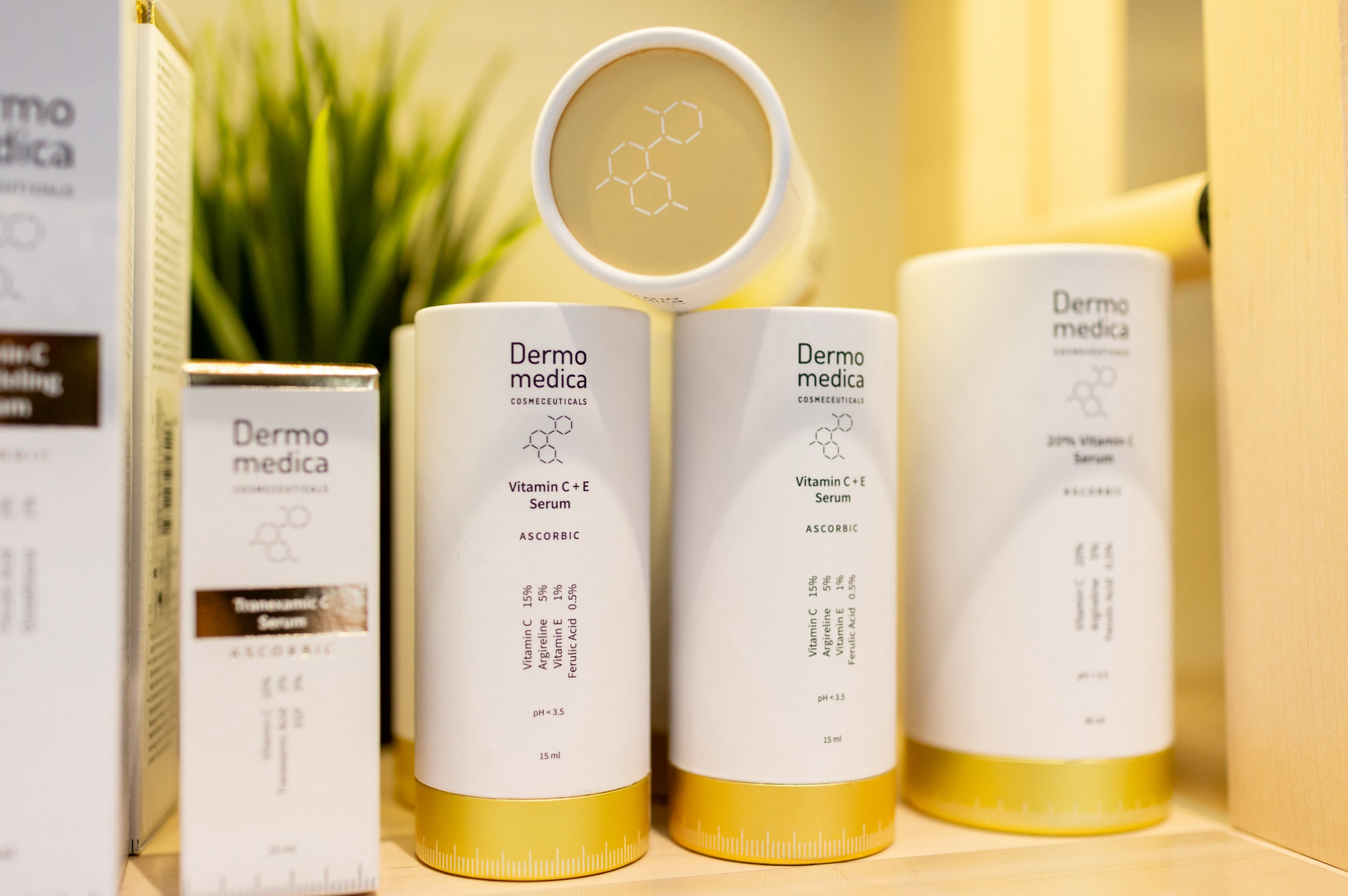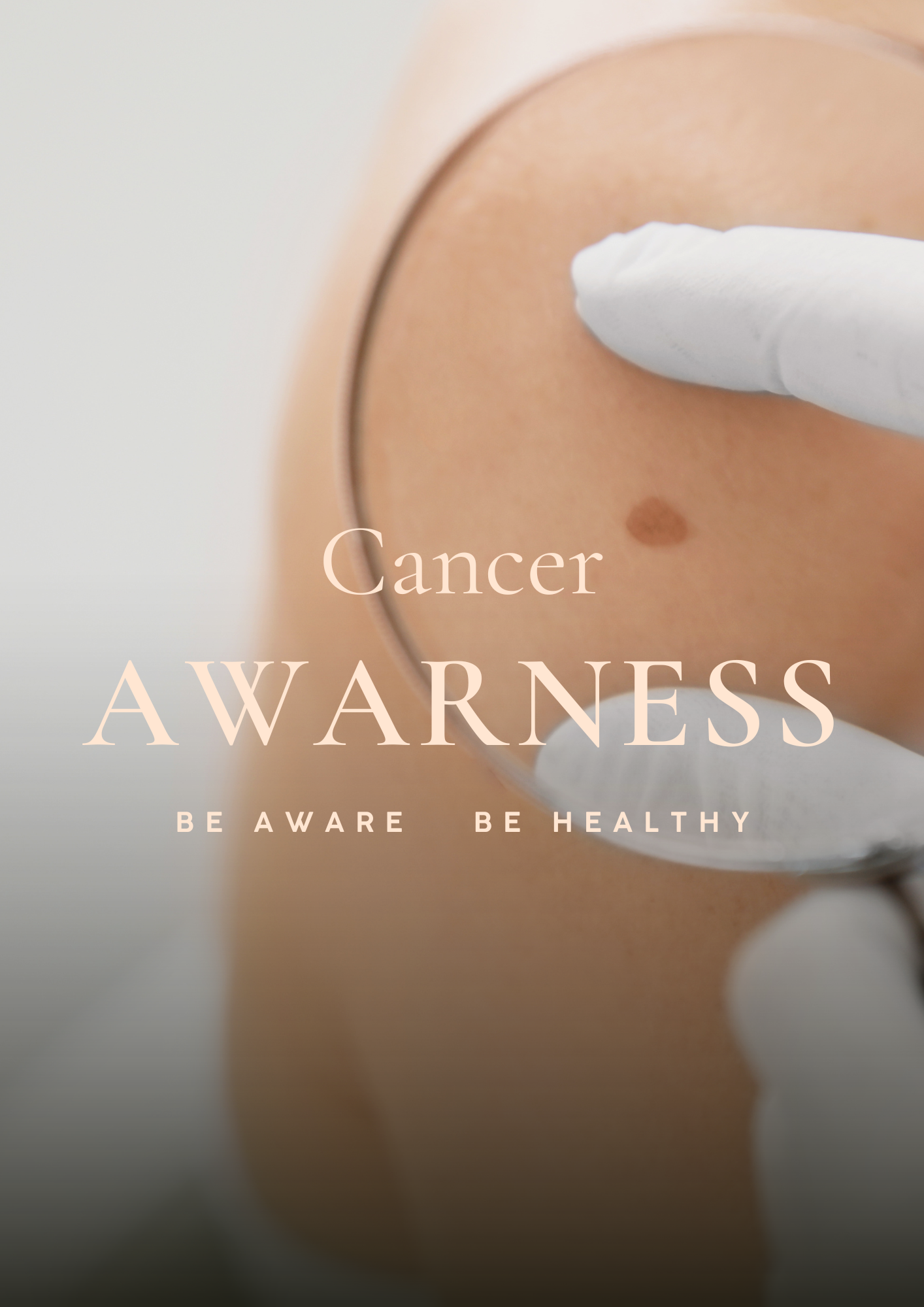As a cosmetologist, I realized how important education is especially during Cancer Awareness Month, it is extremely important to shed light on skin cancer, its various forms, causes and preventive measures. Here I want to give you this information in a simple way so that we can shared this knowledge to protect ourselves and our loved ones.
Understanding Skin Cancer.
Skin cancer is the most common form of cancer globally, primarily caused by DNA damage to skin cells, often due to exposure to ultraviolet (UV) radiation from the sun or other sources like tanning beds. Early detection and education are crucial in preventing severe outcomes and promoting effective treatment.
Types of Skin Cancer
Skin cancer comes in several types, each with distinct characteristics:
- Basal Cell Carcinoma (BCC): The most common type, appearing as a slightly transparent bump on the sun-exposed skin, particularly the head, neck, and arms. BCCs grow slowly and rarely spread to other parts of the body.
- Squamous Cell Carcinoma (SCC): This type often appears as a firm, red nodule or a flat lesion with a scaly, crusted surface. SCC can be more aggressive than BCC and may spread if untreated.

Causes of Skin Cancer
The primary cause of skin cancer is exposure to UV radiation. However, other factors can also contribute:
- Genetics: A family history of skin cancer can increase your risk.
- Skin Type: Individuals with lighter skin are more susceptible because they have less melanin, the pigment that provides some protection against UV radiation.
- History of Sunburns: Repeated sunburns, especially in childhood, significantly raise the risk of developing skin cancer later in life.
- Exposure to Certain Chemicals: Exposure to arsenic and certain industrial chemicals can also increase skin cancer risk.
Protection and Prevention
Protecting your skin from UV radiation is the most effective way to prevent skin cancer so lets stay here for little longer.
- What SPF mean ?? -> It Sun Protection Factor -> Level of protection against UVB \UVA . Have a look for different of levels protections :
SPF 15: Offers basic protection, blocking about 93% of UVB rays. Suitable for short daily exposure.
SPF 30: Popular for everyday use, it blocks about 97% of UVB rays and is good for extended outdoor activities.
SPF 50: Provides high protection, blocking about 98% of UVB rays, recommended for long periods in intense sun conditions.
SPF 100: Offers very high protection, blocking about 99% of UVB rays, ideal for extremely sensitive skin or high-altitude and reflective environments.


To have the full spectrum of protection against UVA \UVB choose the
-
Physical Filters which they most often contain
- Zinc Oxide: Provides broad-spectrum UV protection by reflecting and scattering UV radiation.
- Titanium Dioxide: Also reflects and scatters both UVB and UVA rays but is less effective than zinc oxide against UVA.
- Please choose yous SPF wisely as its your BEST FRIEND against the sun and premature aging! Here its some of my best friends.

- Use Sunscreen Everyday!!! Apply a broad-spectrum sunscreen with an SPF of at least 30, even on cloudy days, best in the morning before you leave the hause .
- Wear Protective Clothing: Long-sleeved shirts, pants, and broad-brimmed hats can shield your skin from the sun’s rays.
- Seek Shade: Avoid the sun between 10 a.m. and 4 p.m. when UV rays are strongest.
- Avoid Tanning Beds: Tanning lamps and beds emit UV rays that can increase your risk of skin cancer.
- Regular Skin Checks: Perform monthly self-examinations and visit a dermatologist annually for a professional skin exam. I want to introduce you some helpful ABCDE method which help you to recognise unwanted spots.

We've been chatting a lot about sun protection, but here’s the serious scoop: sharing information about skin cancer awareness is not just caring—it’s potentially life-saving! Skin cancer is sneaky, but with the right knowledge and a bottle of SPF, we can outsmart it together.
So, let’s keep learning and spreading the word like Every little knowledge you share could be the one that saves somebody lives —literally. Remember, it’s cool to be sun-smart and even cooler to care about each other's health.
Stay sun-safe, spread the love, & knowledge and let’s turn our awareness into awesomeness!


